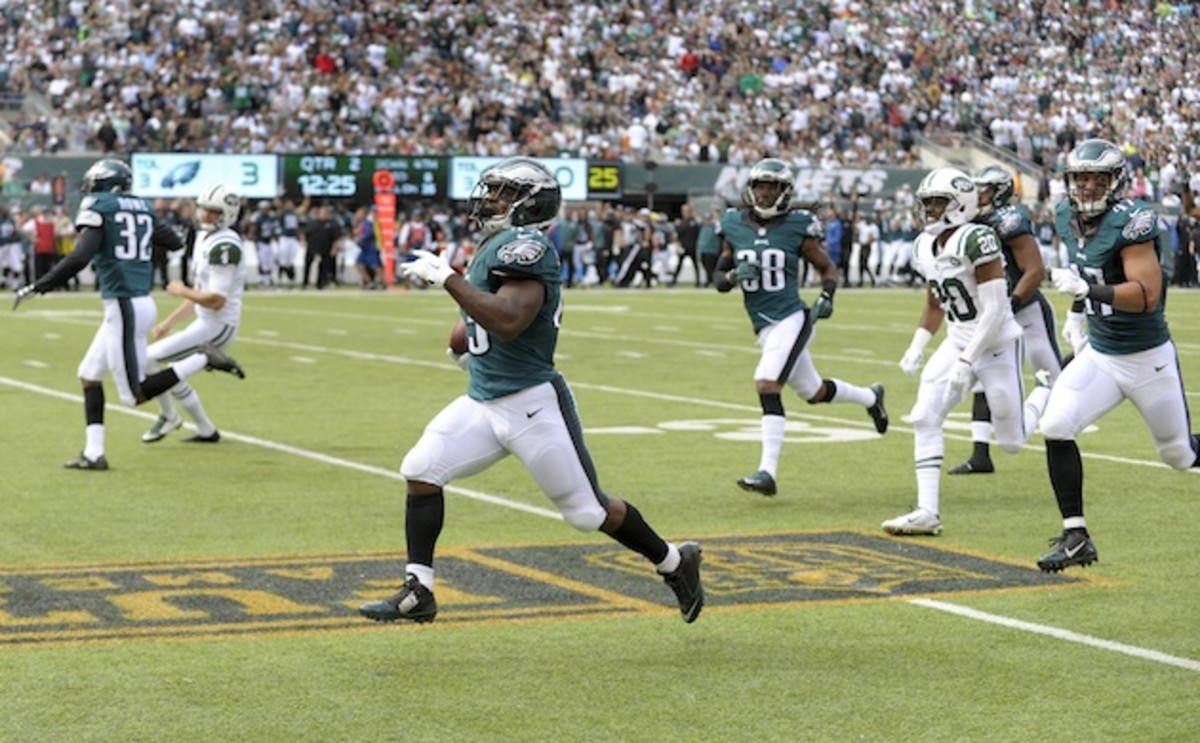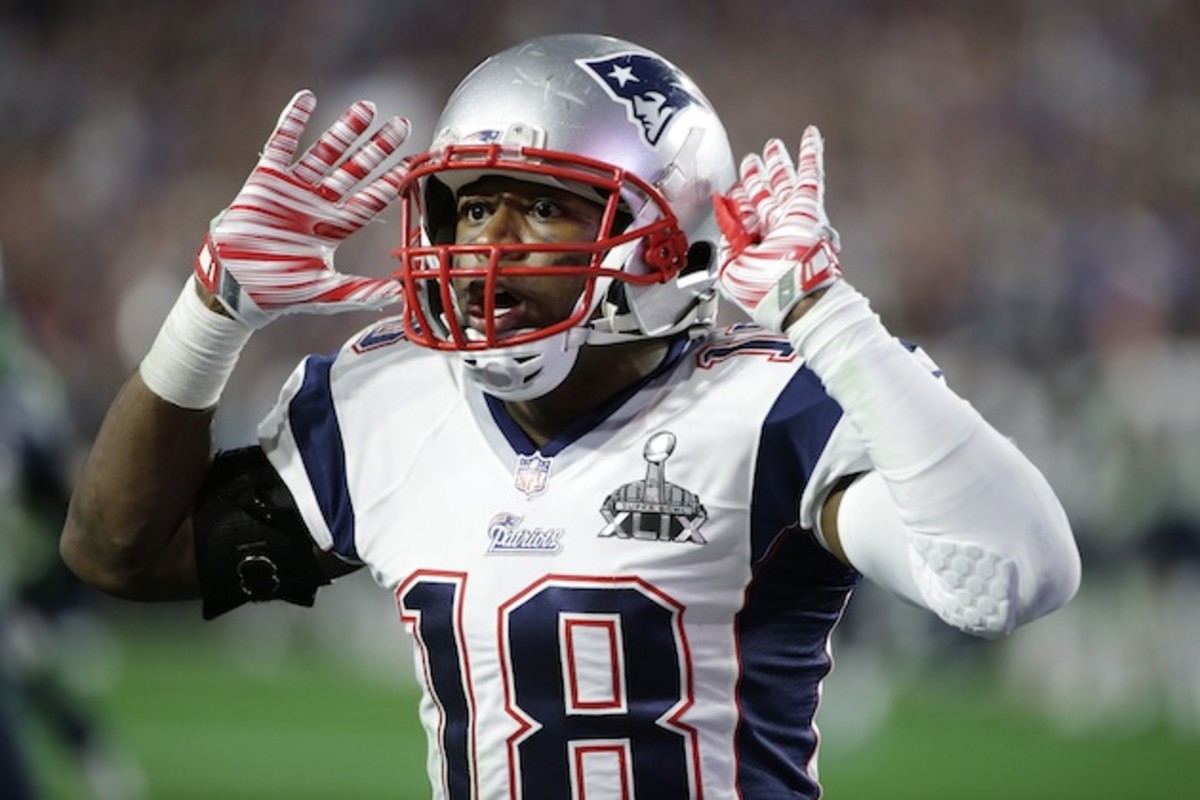Chris Kluwe: Three reasons your favorite team stinks at special teams

So I’ve talked about some pretty downer stuff regarding football recently, and I think it’s time to lighten the mood. Sure, there are still plenty of horrible things happening in the NFL, but we’re not worrying about any of that today. All work and no play CTE DraftDuel something something Ginger Hammer.
No, today we’re asking the question that many fans increasingly find themselves muttering after their favorite team gives up a long punt return for a touchdown, or after watching a kickoff come back to the house: Why does my team suck so bad at special teams coverage?
Let’s take a look:
1. Your team's offensive and defensive philosophy is not conducive to special teams coverage.

This is, by far, the most overwhelming reason why your team sucks at special teams coverage, and it’s one I’ve witnessed first-hand. This happens when the head coach, or GM, or octopus in a tank wearing a Cleveland polo selecting ping-pong balls with draftees’ names on them—i.e., whoever is in charge of your organization—puts a heavy emphasis on running the ball and stopping the run for "team identity" purposes.
Practically, this means your team is drafting and signing a larger percentage of running backs, blocking tight ends and slot receivers on offense; and middle linebackers, defensive linemen and run-stopping safeties on defense. A lower priority is placed on stretch-the-field edge receivers, shutdown corners and coverage safeties. This is a problem for special teams!
See, players who are good at running the ball and stopping the run also tend to be slower than players who are focused more on running deep routes and covering those routes. Surely, the difference is not huge—this is the NFL—but it does represent the difference between beating your man down field and being in position to make the tackle, and getting blocked aside at the last minute and opening up a lane because the trailing player has enough speed to catch you.
Bengals prove again they're one of NFL's best teams in win over Seattle
So, why should we care about these players?
Great question, and an important one. The players I am talking about make up the majority of second- and third-string backups that make it through final cuts, and thus, will form the core of your team’s special teams unit. This means your punt and kickoff coverage units will be composed primarily of backup tight ends, running backs, and linebackers—players, who, while no doubt trying their best, are going to get outrun down the field, at a hopeless disadvantage against faster teams.
Your team's special teams coach, of course, will fight this. He will do everything in his power to keep the fast guys over the slow guys—to keep that backup corner who will never start a single game, but is aces in coverage. He will argue vehemently in opposition to putting the lumbering fullback who comes in on jumbo packages only on the roster. But since the special teams coach occupies roughly the same position in the coaching hierarchy as punters and kickers do in the player hierarchy, his pleas carry about the same chance of success as the Lions do of winning a Super Bowl.
Invariably, the following scenario will play out: Your team will start the season with a fantastic game plan to score 17 points and hold the other team to 14 by focusing intently on running the ball and stopping the run. This works like a charm until your team inevitably allows the other team’s returner to break a 74-yard punt return for a touchdown in the fourth quarter because your second-string running back got locked up by a third-string corner from a team focused on drafting for speed. You will scream at your TV, the special teams coach will have a crying fit underneath the replay hood where no one can see, and the punter will be on that week’s lowlight reel on SportsCenter.
Ah, football.
(Incidentally, this is also why the Raiders were ridiculously good at special teams coverage during the early/mid-2000s, and so horribly bad everywhere else. Speed kills, baby!)
2. Your special teams coach keeps putting offensive players on special teams

This is closely related to Reason 1—results are highly dependent upon the types of backup players that the special teams coach has to work with—but it also can simply be a matter of prioritizing protection over coverage, and then getting burnt on the return (which negates the whole point of protection in the first place, but then what do I know, I’m not a coach).
Fact: Offensive players are great at doing offensive player stuff. This is a given; otherwise they wouldn’t be in the NFL, right? Blocking, identifying blitzing defenders, working in tandem to protect a space—they excel in these areas. What most offensive players don’t excel at, though, is running 40 yards down the field at top speed in a proper pursuit angle, breaking down at the appropriate distance to make a tackle and then actually making the tackle while shedding a blocker who is trying to run them by the play.
Sour Rankings: Mallett's pouting, Pierce's blocking lead Week 5's worst
Why would offensive players be good at this? The vast majority of offensive players have never been required to practice the skills required to execute special teams coverage, particularly since they almost certainly were the stars of their high school and college teams, and thus never needed to play special teams. You can’t get mad at them for being bad in coverage. That’s like being mad at a duck because you can’t milk it for a grande latte.
Do you know who is good at this, though? That’s right—defensive players! Defensive players spend hours each day working on pursuit angles, on shedding blocks and getting into position to make a tackle. It is their job definition. They don’t have to think about what to do, they go out and do it; it’s been ingrained into their muscle memory over so many years of practice that it becomes instinctual. Defensive players are fantastic in special teams coverage, because to them, it’s just another defensive play.
Sure, defensive players might not be great at protection, but your team's punter can always go faster to get the kick off. He’s probably just being lazy.
So where does this leave us?
In NFL practices, offensive players usually wear white jerseys, and defensive players dark jerseys. If you watch your team’s training camp practices during the fall (which, come on, who are we kidding, you totally do because you’re a nutso bonkers fan and you sold your dignity to football long ago), and you notice that your kickoff and punt teams are a solid sea of light jerseys, head immediately to your local liquor store and stock up.
It’s going to be a long season.
3. Your team's punter is asked to do the impossible, its kicker contracted MRSA from the trash-fire training facilities and the owner would rather undergo triple bypass than spend money on the team
Congratulations! You’re the Buccaneers!
(End-of-piece Damper Note: Daniel Fells, a tight end for the Giants, is currently battling MRSA, and could possibly lose his foot. Our thoughts are with him, along with hopes for a full recovery. The Giants are the fifth team to have a player contract MRSA, following Tampa Bay, Washington, St. Louis, and Cleveland. More than 33 confirmed cases have taken place over the last 15 years, several of which have ended careers. Just a thought, but perhaps the NFL should spend some of its profits on proactive workplace sanitation. You know, as opposed to the reactive kind.)

